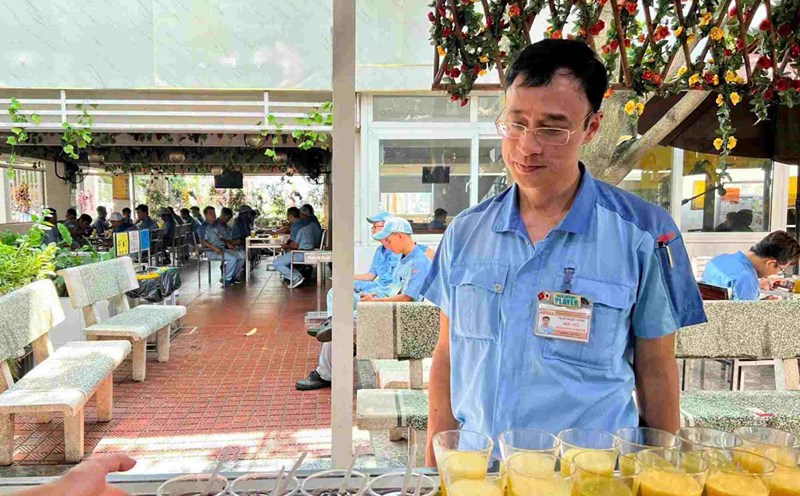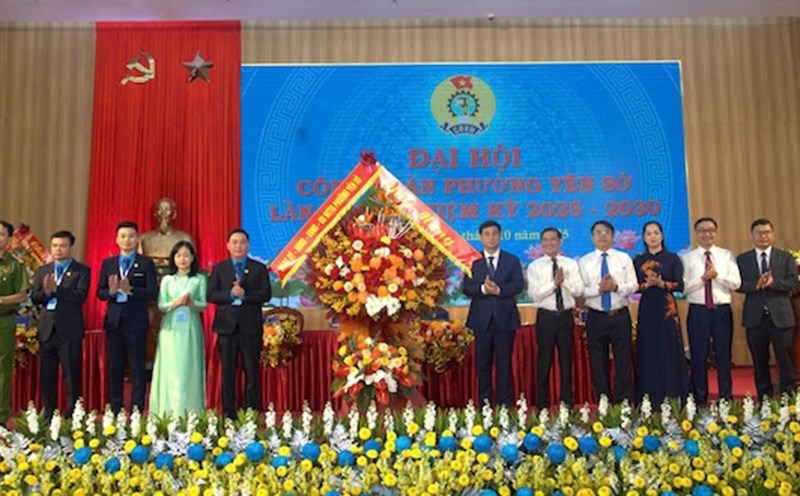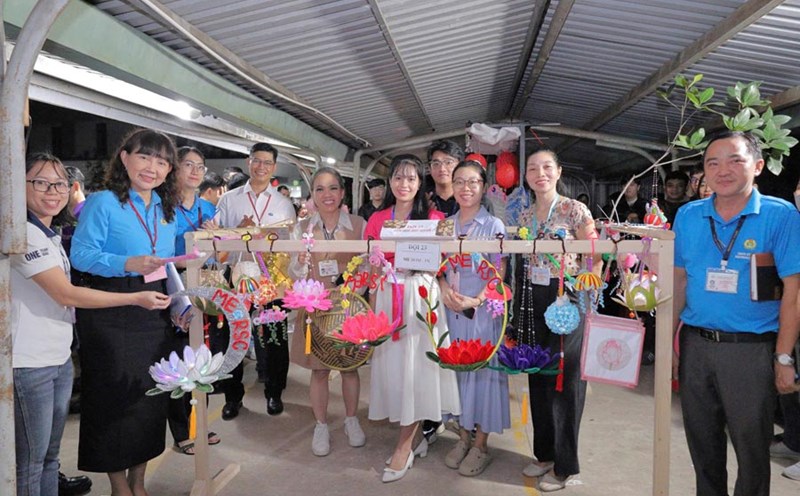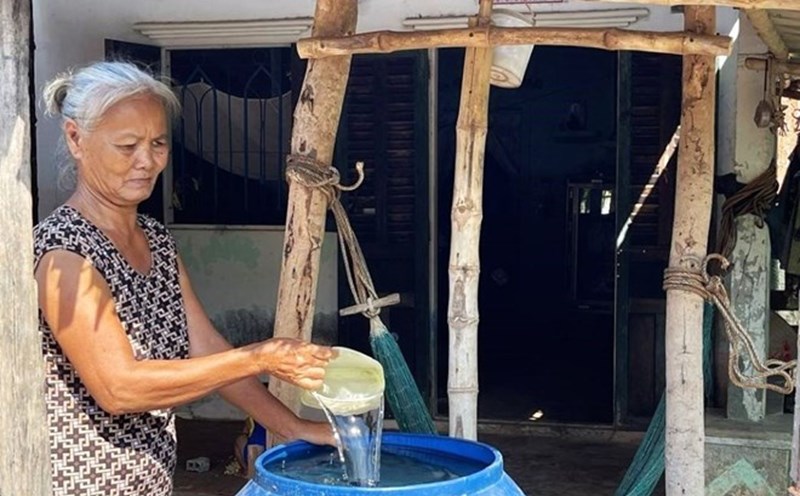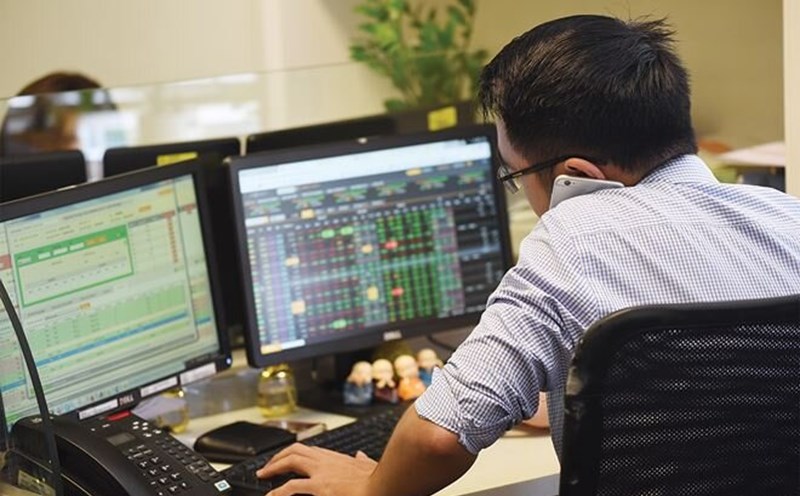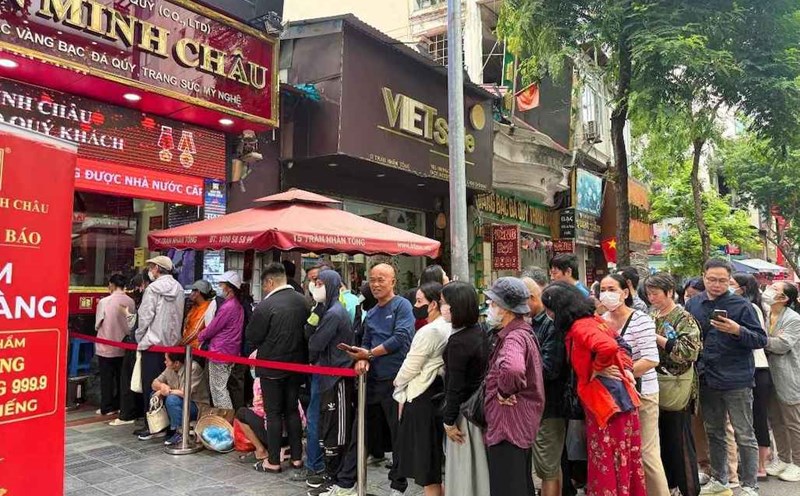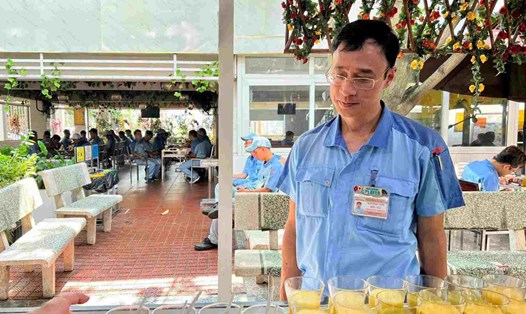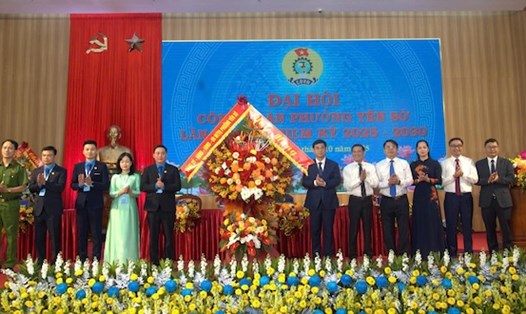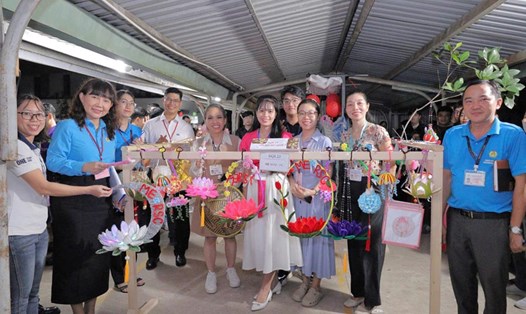That was a text message from Hoa - a worker I met who was working at Bac Thang Long Industrial Park (Hanoi). Hoa's husband is also a worker, has been married for less than 10 years, and now has two children. Hoa's problem has long been a story of spending. The two people's income of nearly 15 million VND per month after deducting compulsory fees is just enough for rent, their two children's education and a few meals.
"If I run out of money, I have to borrow, I don't buy anything. My whole pair of pants is discounted or given back to each other, I choose cheap food, I don't dare to look at big brands" - Hoa said.
Hoa's story is not unique. According to the Vietnam General Confederation of Labor, the average income of workers today ranges from 7 - 8.5 million VND/month, but living expenses have increased continuously. Electricity, water, accommodation, and food prices have all increased. A recent survey shows that more than 70% of workers no longer have savings; 1/3 have to work overtime or find part-time jobs to cover expenses.
According to the Ministry of Home Affairs, the current regional minimum wage is from 3.25 to 4.68 million VND/month, but most businesses only pay a little above the average. With a rental price of 2 - 3 million VND, a food fee of 2 - 3 million VND/month, most workers are just enough to live on, unable to save or spend for higher needs such as shopping, travel, health care.
According to a survey by the Workers' - Trade Union Institute, nearly 60% of workers do not plan to shop for Tet, or only spend at a minimum level. It is noteworthy that domestic consumer confidence is recovering, but purchasing power among low-income groups - mainly workers - is still very weak. Meanwhile, Vietnamese goods are increasingly diverse and of high quality, from fashion, food, to household appliances. However, the biggest barrier for workers is price and access. Near the boarding house, I mainly have small stores, few genuine Vietnamese goods, while there are many floating goods and cheap imported goods. To buy quality Vietnamese goods, you have to go far or order online, it is very uncomfortable" - Mr. Nguyen Van Manh, a worker in Quang Minh Industrial Park (Hanoi) shared.
According to the Ministry of Industry and Trade, Vietnamese goods account for more than 80% of the market share in large supermarkets, but only about 40% are in traditional markets and small stores - where workers shop every day. This shows that the gap between production and consumption is still far away.
While Vietnamese goods are increasingly quality and environmentally friendly, many workers have not had access to the right distribution channels or appropriate price policies".
In fact, promotional programs and Vietnamese goods fairs are mainly held in large cities or during holidays. After finishing, workers return with cheap options of unknown origin.
The campaign "Vietnamese people prioritize using Vietnamese goods" launched by the Central Committee of the Vietnam Fatherland Front more than 15 years ago, although it has spread strongly, has not really "touched" the group of low-income people - those who make Vietnamese goods but are not able to access high-quality Vietnamese goods.
**
At the end of each year, in order to support workers in difficulty, the Vietnam General Confederation of Labor (VGCL) is promoting the series of programs "Workers' Market", "Union Supermarket", "Zero-dong Booth", after many years of organization, millions of workers have been given free shopping vouchers, or have purchased Vietnamese goods at a discount of 20 - 50%.
According to the plan recently issued by the Vietnam General Confederation of Labor, with the motto "All union members and workers have Tet, enjoy Tet", the Vietnam General Confederation of Labor will organize activities to care for Tet for union members and workers at all levels of trade unions; notably, organizing visits, giving gifts, and wishing union members and workers in difficult circumstances and low income a happy New Year.
The Vietnam General Confederation of Labor will organize delegations to visit, give gifts, and wish a happy New Year to union members and workers at enterprises, industrial parks, export processing zones, etc. in enterprises and units with outstanding production and business results, many workers in difficult circumstances, low income, heavily affected by natural disasters, remote areas, arduous, toxic, dangerous industries, etc.
The estimated expenditure is 1.3 million VND/person (including 1 million VND in cash and 300,000 VND in gifts). The implementation budget is from the regular operating fund of the Vietnam General Confederation of Labor.
Particularly during the Lunar New Year 2026, the Vietnam General Confederation of Labor will organize the program "Union Tet Market - Spring 2026" directly and online to provide essential, quality goods and services at preferential prices, give shopping vouchers, give away products at the price of "0 VND", reduce prices, organize cultural and sports activities, give gifts, legal advice, health consultation, provide medicine, change motorbike oil for free... for union members and workers.
Union members and workers are directly supported with discount codes (vouchers) through the program "Union Tet Market - Spring 2026" online. The vouchers are distributed to grassroots unions.
These activities are also implemented to the Provincial and Municipal Labor Federations, Central Industry Unions, Economic Group Unions, General Corporation Unions under the Vietnam General Confederation of Labor, and grassroots unions.
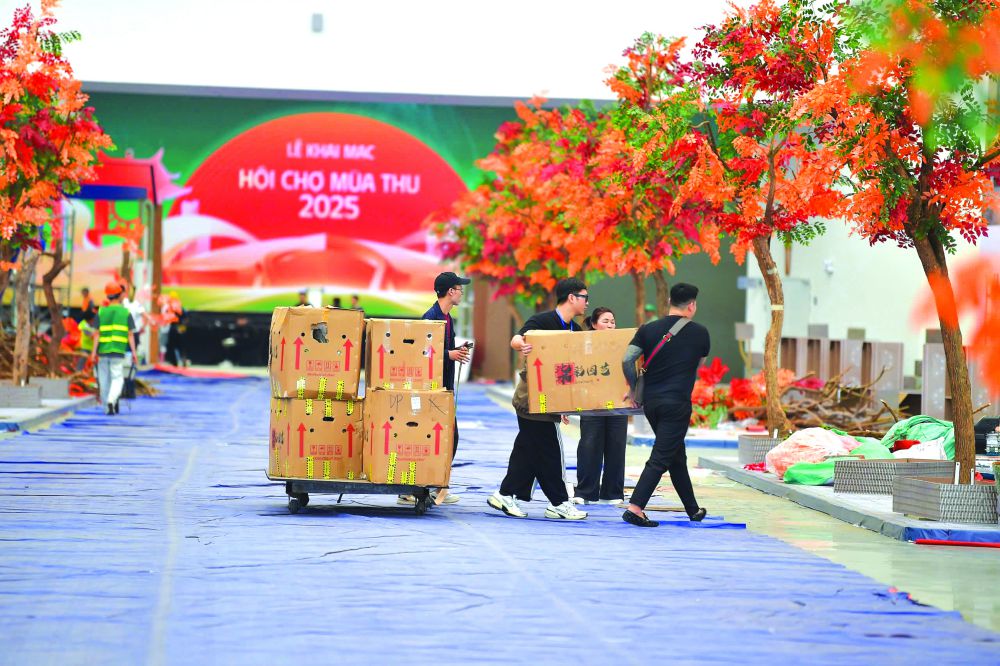
The viewpoint of the Vietnam General Confederation of Labor is not to let workers stay outside the consumption flow of Vietnamese goods. Each worker has access to quality Vietnamese goods at reasonable prices, which is a step forward in ensuring social security and stimulating domestic demand.
In March 2025, the Vietnam General Confederation of Labor issued Plan No. 207/KH-TLD to implement the campaign "Vietnamese people prioritize using Vietnamese goods" in the trade union system in 2025. The consistent goal of the plan is to arouse patriotism and national pride, promote consumption of Vietnamese goods among workers and civil servants, contribute to stabilizing the macro economy and ensuring social security.
The plan emphasizes the need to promote propaganda work in the direction of innovation and application of information technology. The content of the propaganda should be associated with promoting Vietnamese products, goods, services, and brands in diverse forms such as on e-commerce platforms, direct sales channels, online, etc., creating more favorable conditions for workers to access products, goods, and services.
Trade unions at all levels are responsible for promoting and introducing quality Vietnamese branded products and services, and reputable business addresses so that workers have full information. At the same time, encourage businesses and production facilities to prioritize the use of raw materials and domestic materials; agencies and units using the State budget need to prioritize domestic products, especially products that are the results of domestic scientific research.
With this plan, the Vietnam General Confederation of Labor identifies workers and laborers not only as subjects to be mobilized to consume Vietnamese goods, but also as a pioneer force in building a "Vietnamese consumer culture".
"Vietnamese goods are very different now, from the design to the quality. We workers feel respected for having our own policies and having priority booths. I think using Vietnamese goods is also the most practical way to be patriotic" - Ms. Le Thi Thu Hang, a worker in Quang Minh Industrial Park shared.
**
Just over a decade ago, in the minds of many Vietnamese people, foreign goods were good. But now, the market landscape has changed. The report of the Statistics Office shows that total retail sales of goods and consumer service revenue in the first 9 months of 2025 increased by 9.5%, reflecting strong recovery of domestic purchasing power and people's confidence in Vietnamese goods.
According to the Ministry of Industry and Trade, Vietnamese consumers are increasingly smart and demanding. They require products to be of good quality, trace their origin, and environmentally friendly, and businesses must have social responsibility. This is a new measure of "love for Vietnamese goods" - not just a slogan but a real belief.
On September 29, 2025, Prime Minister Pham Minh Chinh signed Official Dispatch 179/CD-TTg, requesting the organization of a special communication campaign to promote the campaign "Vietnamese people prioritize using Vietnamese goods", associated with trade promotion programs, promotions, bringing Vietnamese goods to rural areas, mountainous areas and industrial parks.
The Ministry of Industry and Trade approved the Domestic Market Development Program for the period 2025 - 2027, setting a target of 10.5% growth in total retail sales of consumer goods and services in 2025, striving to reach 12%.
The 2025 Autumn Fair held from October 26 to November 4, 2025 at the Vietnam Exhibition Center (VEC), Dong Anh, Hanoi, is considered the "first launching pad" to realize those goals.
Mr. Cao Xuan Thao - Member of the Presidium, Head of the Social Work Department of the Central Committee of the Vietnam Fatherland Front shared that the 2025 Autumn Fair event will be a very important activity to promote the campaign "Vietnamese people prioritize using Vietnamese goods".
As for Central Party Committee member, Deputy Prime Minister Bui Thanh Son - Head of the Steering Committee of the 2025 Autumn Fair, affirmed: "The Autumn Fair is not only a place to promote goods, but also a symbol of the spirit of solidarity - where Vietnamese people work together to build a self-reliant economy".
However, from an international fair, the largest ever, to bringing Vietnamese goods to consumers, including millions of workers, it is still a journey that requires a lot of effort.
However, for Vietnamese goods to truly enter the lives of workers, more "hand-to-hand" policies are needed. That is the need to bring Vietnamese goods to rental areas and factories through the distribution chain; support small credit for workers shopping for Vietnamese essential goods; reduce VAT on domestic products to serve people's needs; strengthen the supervision of counterfeit and fake goods so that trust in Vietnamese goods is not eroded.
Returning to the story of Hoa - a worker in Bac Thang Long Industrial Park (Hanoi), I believe that events implemented by the trade union organization or consumer stimulus fairs such as the upcoming Autumn Fair will be an opportunity for her and other workers to participate more deeply in the development process of the country.
Hoa told me: "Now I choose more Vietnamese products, because I find them reliable. Hopefully the price will not be too high so that our workers can buy them regularly".
That simple statement contains a big message: Workers are VND ambassadors if they are properly supported. When the minimum wage ensures enough to live on, the price of Vietnamese goods is reasonable, and the distribution channel is convenient - then Vietnamese goods are not only a choice, but a source of pride.

